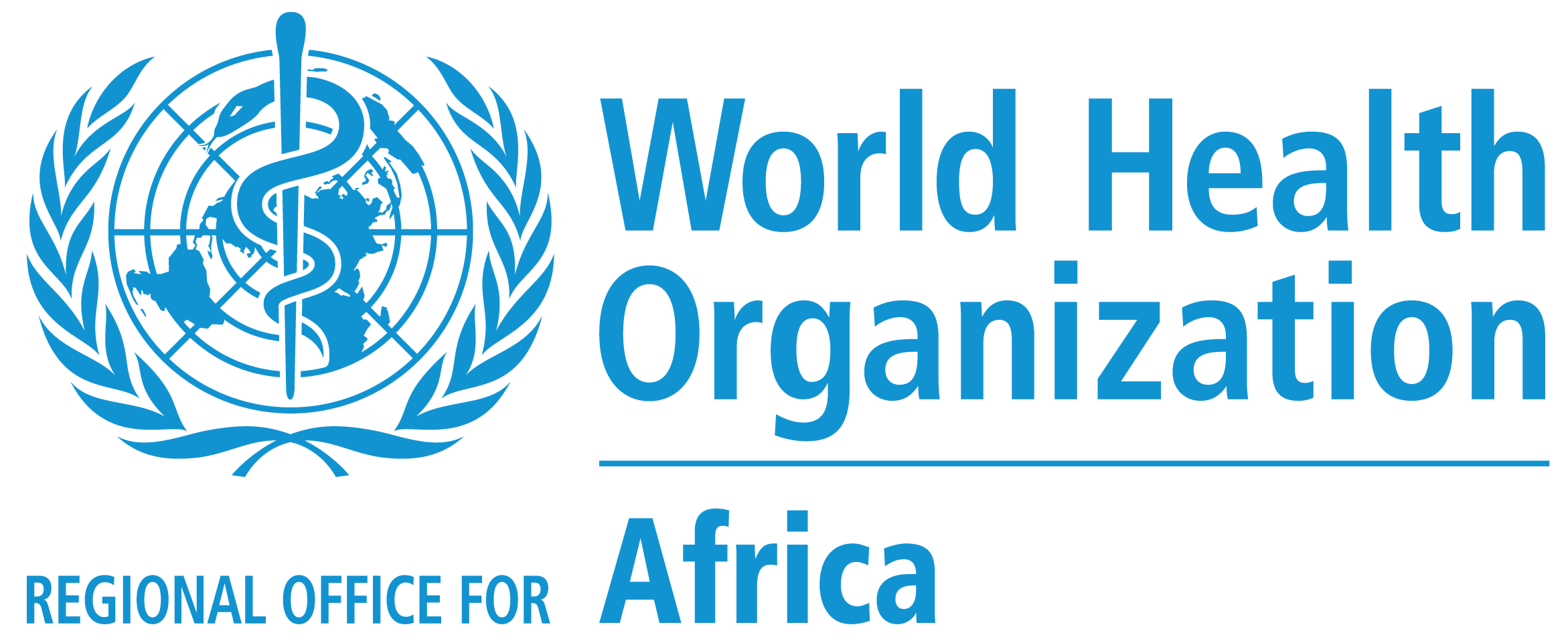Borno: Africa’s last wild poliovirus frontier
When Aisha took her son Busami Modu to his grandmother’s house in Kuya, a village in Borno state, Nigeria, she waved goodbye to a healthy, happy little boy. A “beauty to behold,” she recalls. The next time she saw him, he was paralysed and unable to walk.
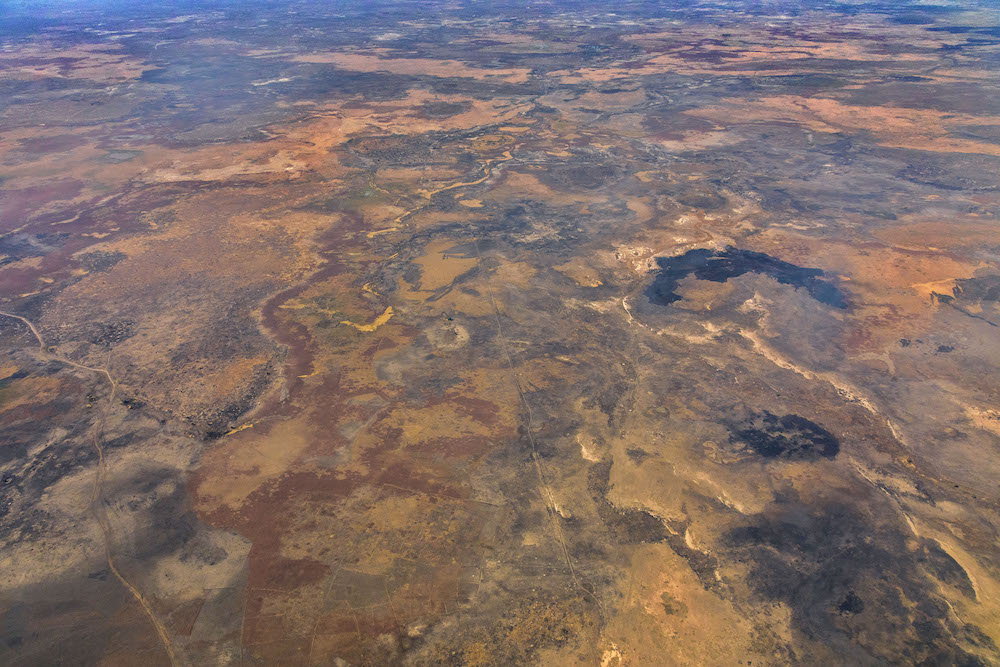
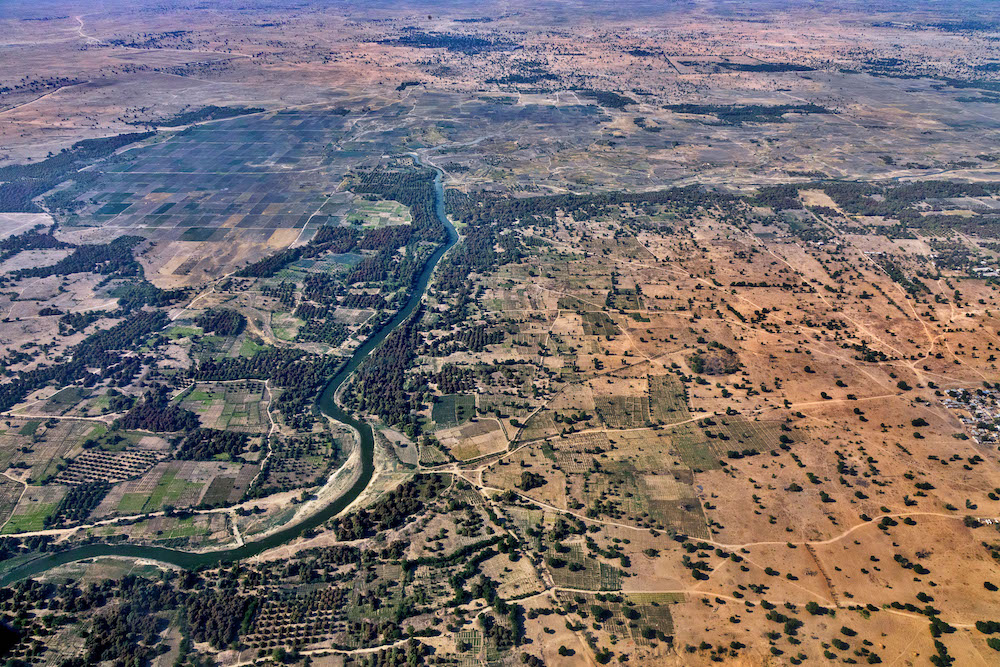
Aerial views of Borno State. © Andrew Esiebo/WHO
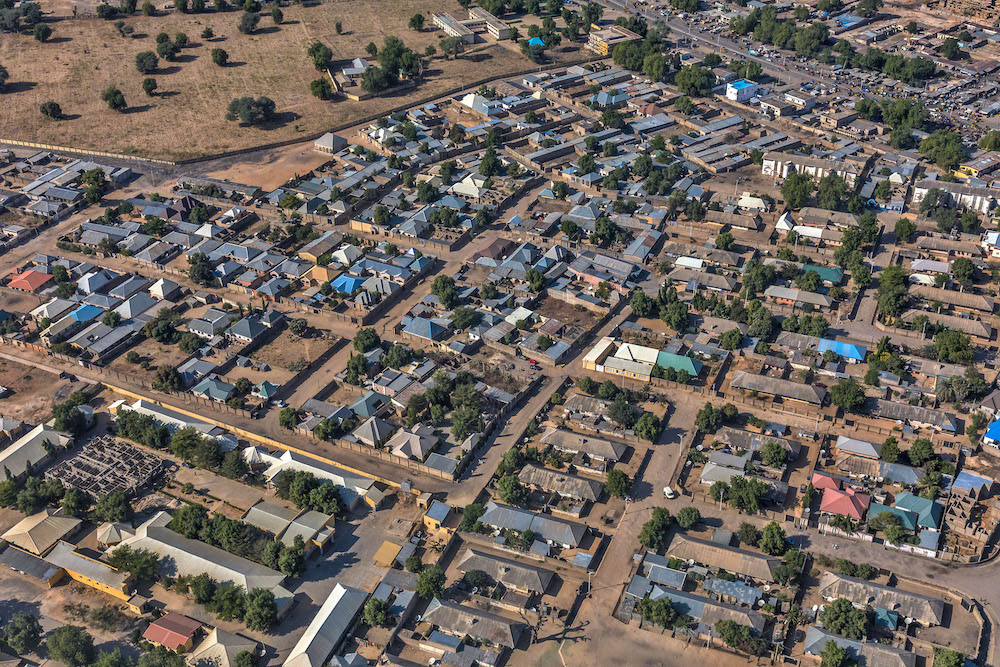
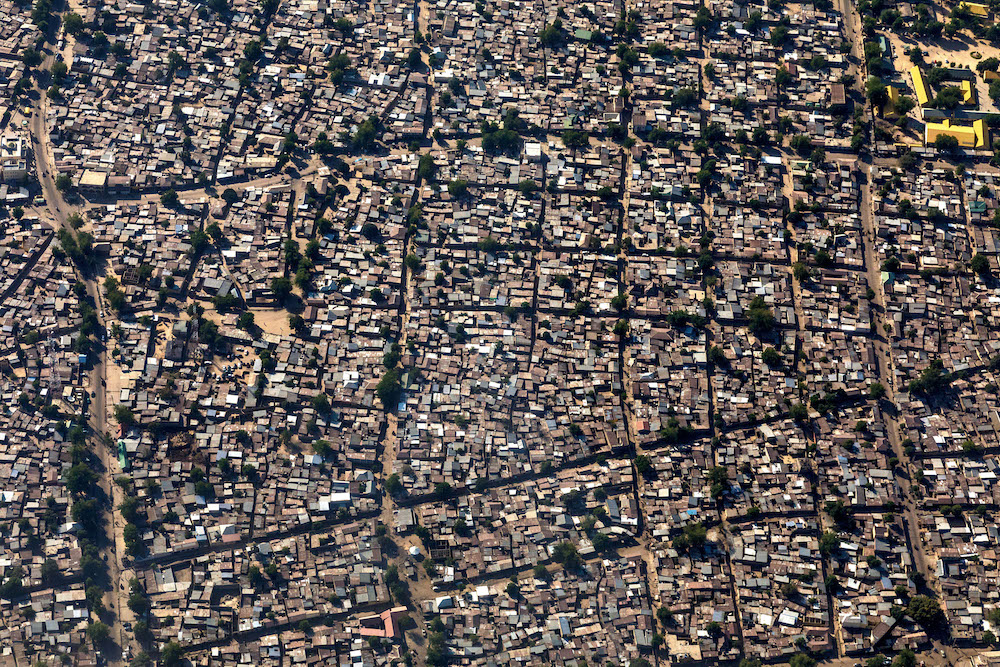
Aerial views of Maiduguri, Borno State’s largest city. © Andrew Esiebo/WHO
Like the rest of the world, northern Nigeria’s struggle to eradicate polio is a story of myriad challenges, setbacks and disappointments, but ultimately of colossal efforts, innovations and boundless perseverance.
Paralysed as a child by polio, Mariam Umar from Kano State has been working as a community mobilizer with the polio eradication programme for seven years. “I help mobilize people, so my community would accept the vaccine when they see my situation.” © Andrew Esiebo/WHO
Polio eradication efforts were initially slow to get underway in this corner of Nigeria but by the early 2000s, they were making progress. A huge setback reversed this in 2003. Rumours swept across Borno, Kano and other northern states that polio vaccines were a ploy to sterilize Muslim children, leading to widespread vaccine boycotts.
“Our people did not agree with this immunization,” recounts Aminu Ahmed, who chairs Nigeria’s Polio Victims Association. “People feared their wives would not be able to have children.”
Amid the backlash, polio vaccination campaigns were cancelled altogether. Polio cases soared in Nigeria and the virus spread across the continent; eventually 20 countries were infected. Even when vaccination campaigns were reinstated, communities were still reluctant to accept vaccines for their children. By 2009, almost a quarter of the world’s wild polio cases were in Nigeria.
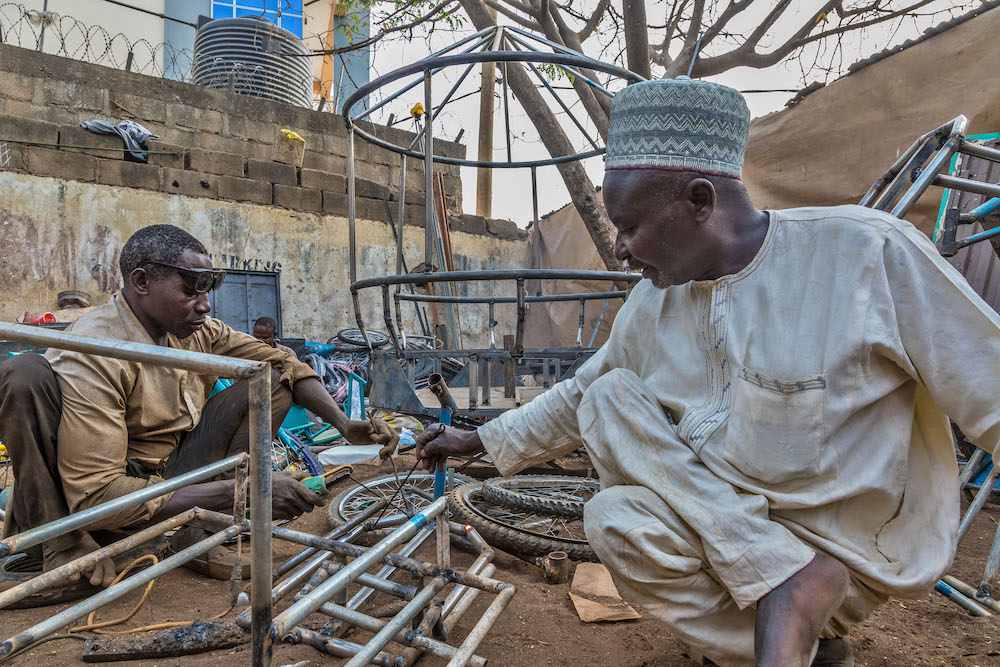
Aminu Ahmed created the Polio Victims Trust Association in the state of Kano in 2004. “There were 150 cases in Kano when the entire country counted 400 cases,” he recalls. We wanted to use the association to create awareness among the community.” They persuaded reluctant community members to allow their children to be vaccinated by asking them,“do you want your son to become like me?” Today, the association works with Rotary, UNICEF, WHO and other partners in 20 states in northern Nigeria. © Andrew Esiebo/WHO
In 2004, a member of the Jama’atu Nasril Islam (the Society for the Support of Islam) questioned whether the government’s vaccination programme contravened the tenants of Islam. In response, the federal government set up an OPV Verification Committee made up of experts and traditional leaders. The late Shehu was part of the 23-person team that visited OPV manufacturing factories in India, Indonesia and South Africa to confirm that the polio vaccines were manufactured in a way that complies with Muslim halal tradition. © Andrew Esiebo/WHO
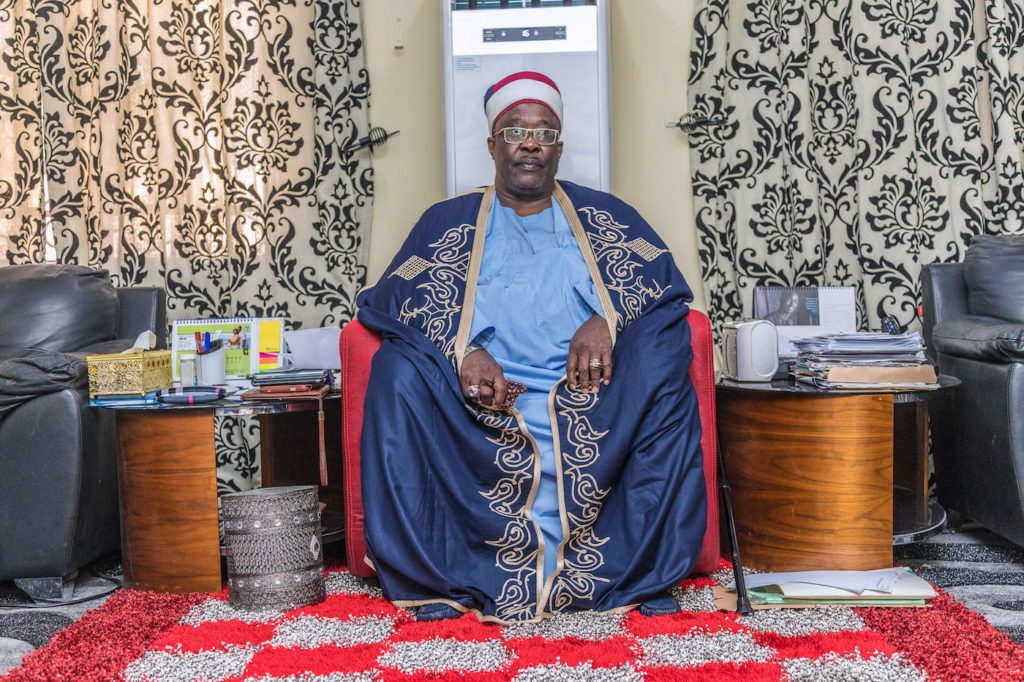
Slowly, this reluctance morphed into acceptance and finally widespread support for vaccination. This was thanks to the work of polio survivors like Mr Ahmed, and in large part to the region’s traditional and religious leaders. After the boycott in 2004, these leaders took up the mantle for polio eradication.
“We all intervene from our top hierarchy down to the workers to do monitoring so that we don’t miss one single case,” said His Royal Highness, the late Shehu of Bama, Alhaji Kyari Umar Ibn Umar El-Kanemi, when interviewed in February 2020. As the chairman of the Northern Traditional Leaders Committee on Primary Health Care Delivery and the Traditional Leaders Forum of the State Task Force on Immunization, he was known for his absolute dedication. The Shehu, who never missed a single meeting, championed community engagement as a way to increase demand for immunization.
Unfortunately, as support for polio eradication in the region grew, so too did insecurity, fuelled by insurgency. Sadly, several polio vaccinators lost their lives as they worked to deliver vaccines; yet, frontline workers courageously continued their work. Despite their perseverance, vaccinators could not reach settlements that were occupied by insurgents.
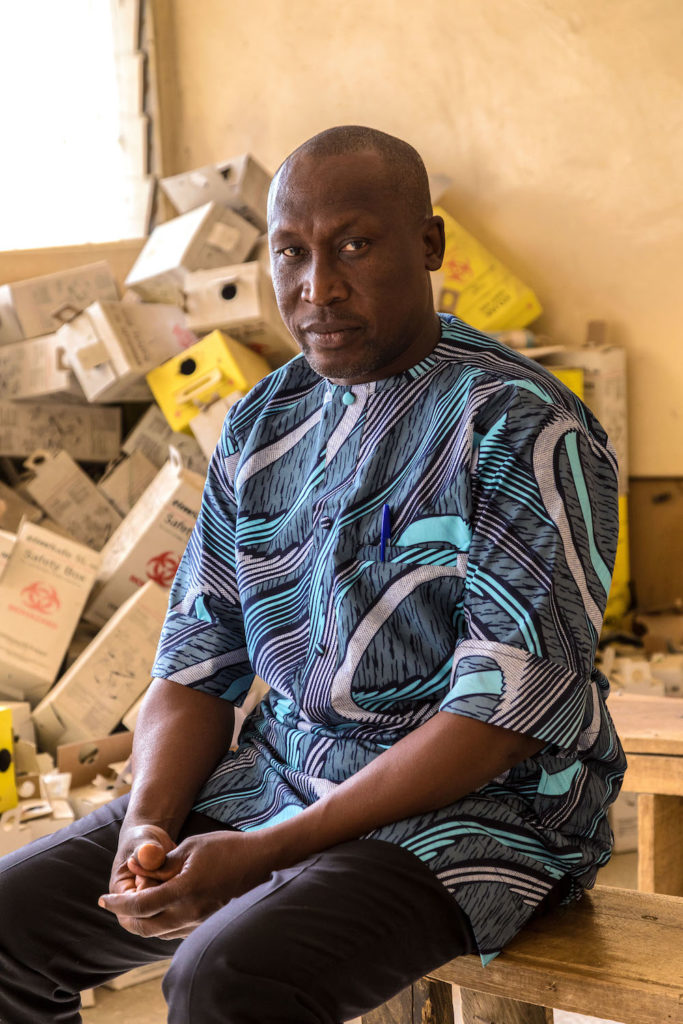
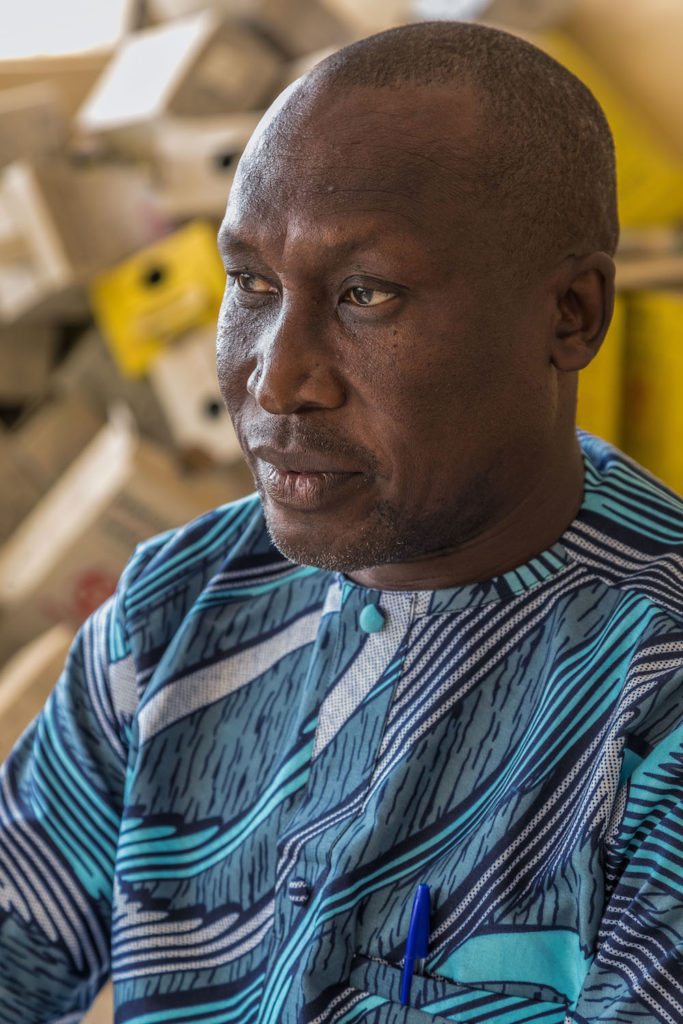
In February 2013, Abbas Ibrahim, a WHO Ward Vaccination Co-ordinator in Kano State, was organising a mop-up immunization campaign with colleagues in his office at Kauyen Aliu Basic health facility when he heard gunshots. Flung to the floor in terror, bullets tore over his head hitting five colleagues, killing three of them. “Only I was not shot,” he says. After the attack Mr Ibrahim went back to work. “Maybe God wants me to accomplish something I have not accomplished yet… So I feel it is my challenge to carry on doing the good work,” he reflects. © Andrew Esiebo/WHO
By 2012, there were 122 wild polio cases in Nigeria, accounting for more than half the global number of polio cases. Polio vaccination teams clambered to reach as many children as possible. Their grit seemed to pay off. The number of wild poliovirus cases reduced to 53 in 2013 and six in 2014. With no reported cases in 2015, the country was eligible to be removed from the list of polio endemic countries.
The celebration was short-lived, however: in August 2016, four cases of wild poliovirus, including Busami Modu’s, were detected in Borno State.
“The resurgence of wild poliovirus was a huge setback for all of us—especially those who had dedicated years towards its eradication,” says Peter Hawkins, UNICEF Representative for Nigeria.
Although disappointing, the news was not completely unexpected. That year, insurgency had spread across the state. Thousands of children missed their vaccinations as vaccination teams could not reach communities in areas under the control of the insurgents. A new strategy was needed.
“We knew that the old ways wouldn’t cut it. We had to think outside the box,” says Dr Audu Idowu, who was appointed as the WHO State Coordinator for Borno in September 2016, to lead the response against this new wild poliovirus outbreak.
“Our strategy at the time relied on vaccinators going door to door to vaccinate children in internally displaced camps and accessible villages,” says Dr Sule Mele, the Executive Director of the State Primary Health Care Development Agency of Borno State. “That was simply not enough given the exceptional circumstances that Borno was facing.” © Andrew Esiebo/WHO
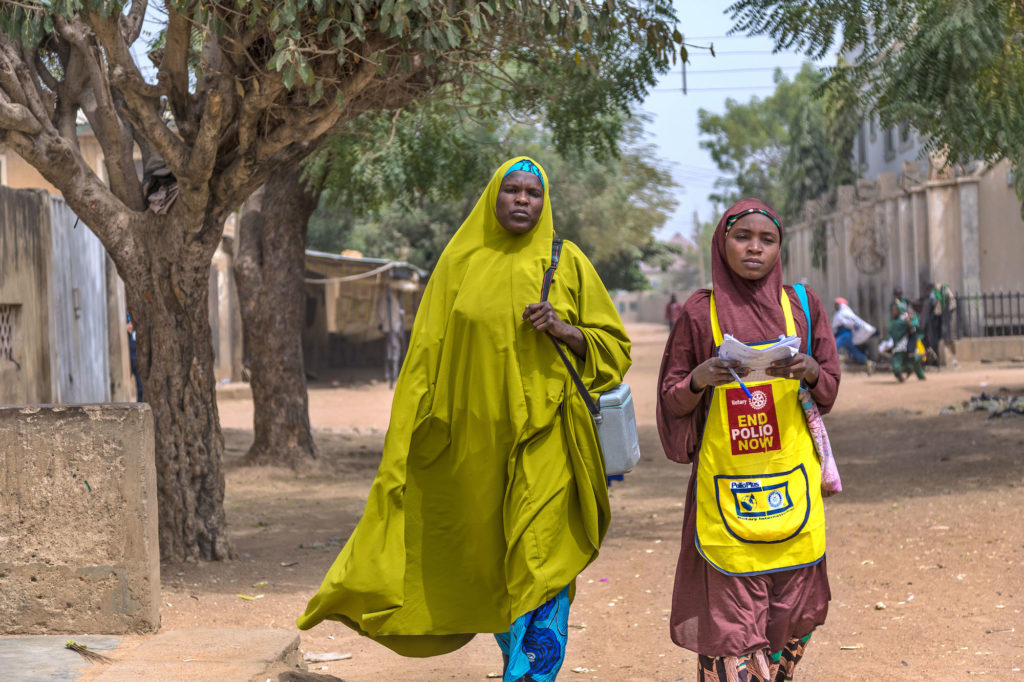
“Political leaders threw their support behind the task at hand, no holds barred. This unconditional commitment at the top “trickled down and translated all the way to the communities,” says Dr Faisal Shuaib, Executive Director of National Primary Health Care Development Agency (NPHCDA) in Nigeria. “The traditional leaders, the religious leaders,” in these communities, “really took a cue” from the country’s leadership.
National leaders, state officials, local government health authorities, the military, traditional and religious leaders, local polio survivors, and frontline health workers all came together behind their shared goal. UNICEF deployed more than 4,000 community mobilizers to help build support for polio vaccination in communities. Everyone set to work, devising and rolling out the new approach, coordinated by the National Polio Emergency Operations Centre (NEOC). “The approach for coordination of the response from the NEOC was aggressive, and the commitment of all our partners was simply phenomenal,” says Dr Usman Adamu, Incident Manager for the NEOC.
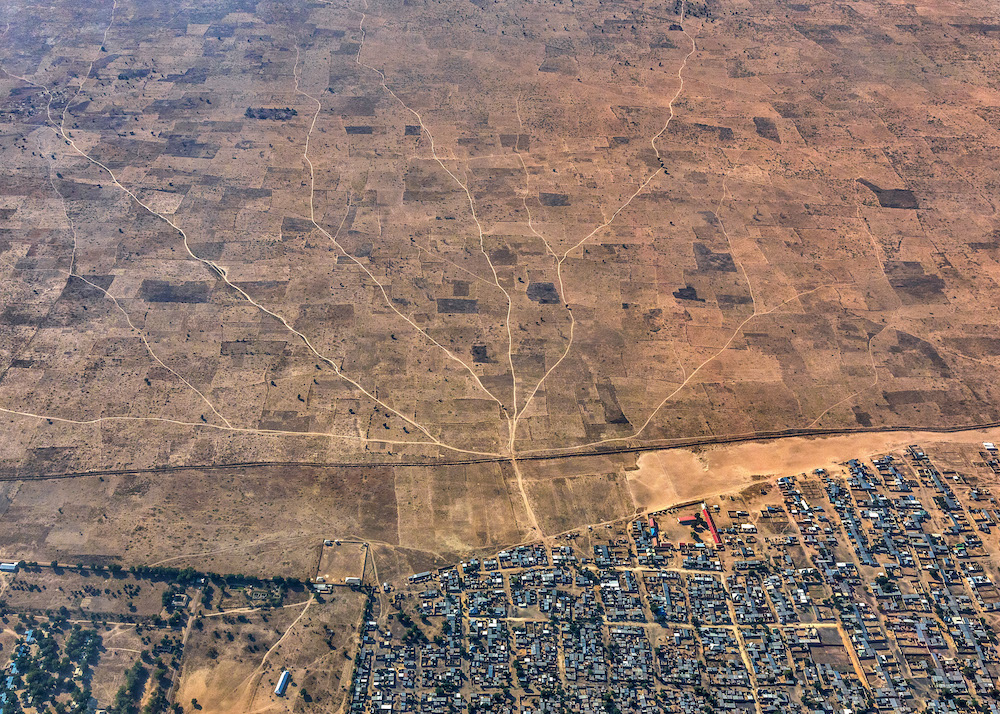
“We train the military to conduct vaccination and active surveillance in completely inaccessible areas,” explains Dr Audu Idowu, WHO State Coordinator for Borno, about the Reaching Inaccessible Children (RIC) strategy used from 2016 in the state. © Andrew Esiebo/WHO
Polio teams also set up shop on the boundaries of these insecure areas. Here, they could vaccinate children as they crossed back and forth and also enlist men and women to spot and report polio and other diseases from inside areas under insurgent control. In the camps for internally displaced persons (IDPs), polio teams stepped up their efforts, from carrying out vaccinations to taking stool samples from children to be tested for polio as they arrived.
Community surveillance monitors living in inaccessible areas are given guidelines and training on spotting the six “top diseases” including polio, measles, cholera, and meningitis. Polio teams outside the conflict zones keep an eye on surveillance activities through mobile phones given to them, which also helps the polio team map cases of these diseases. Today there are more than 1,200 volunteers. © Andrew Esiebo/WHO
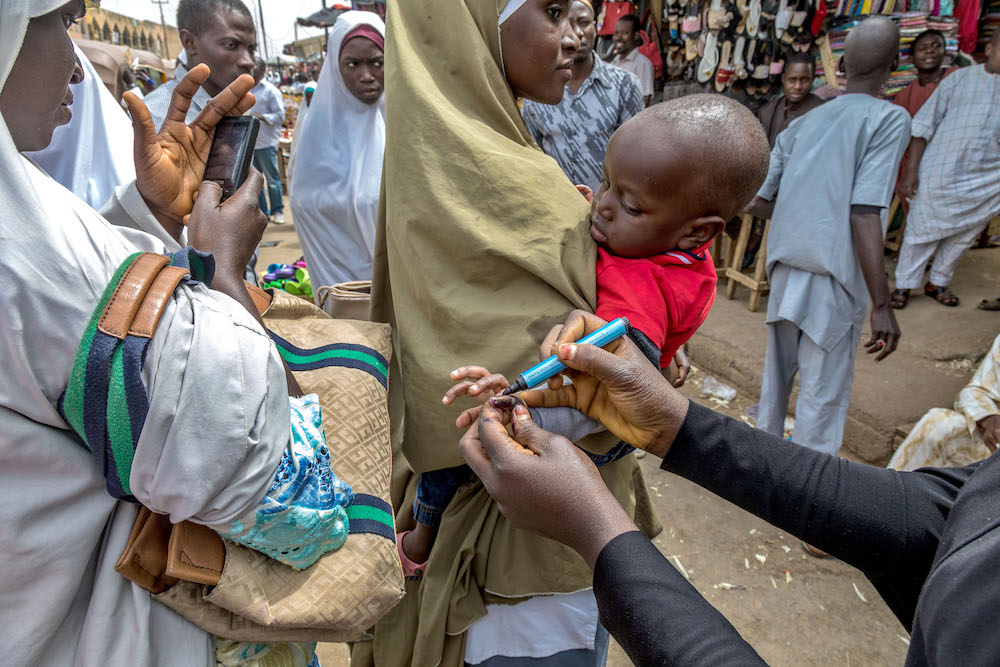
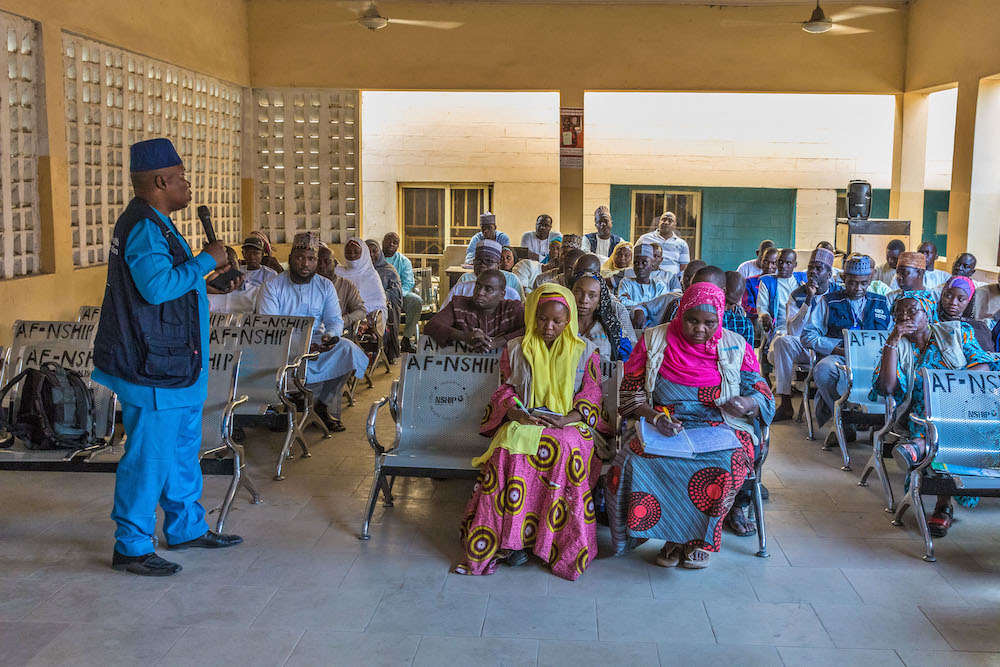
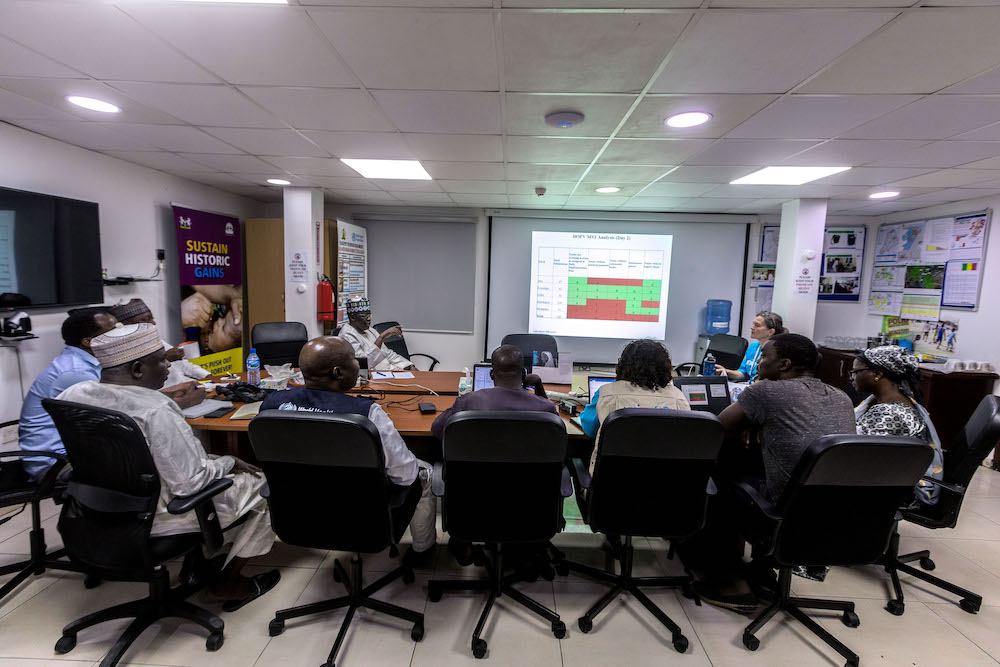
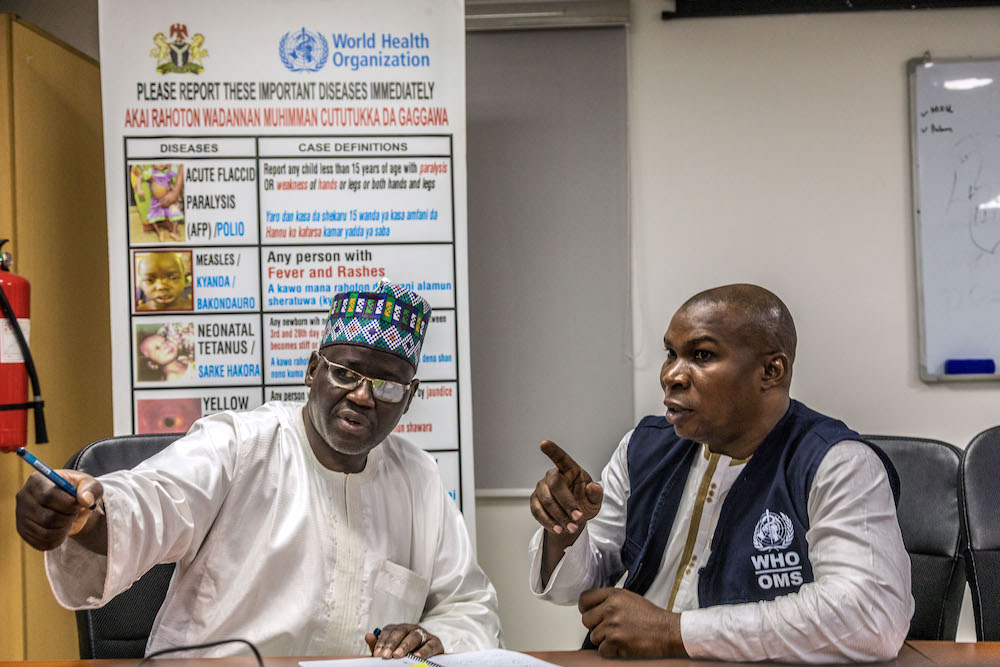
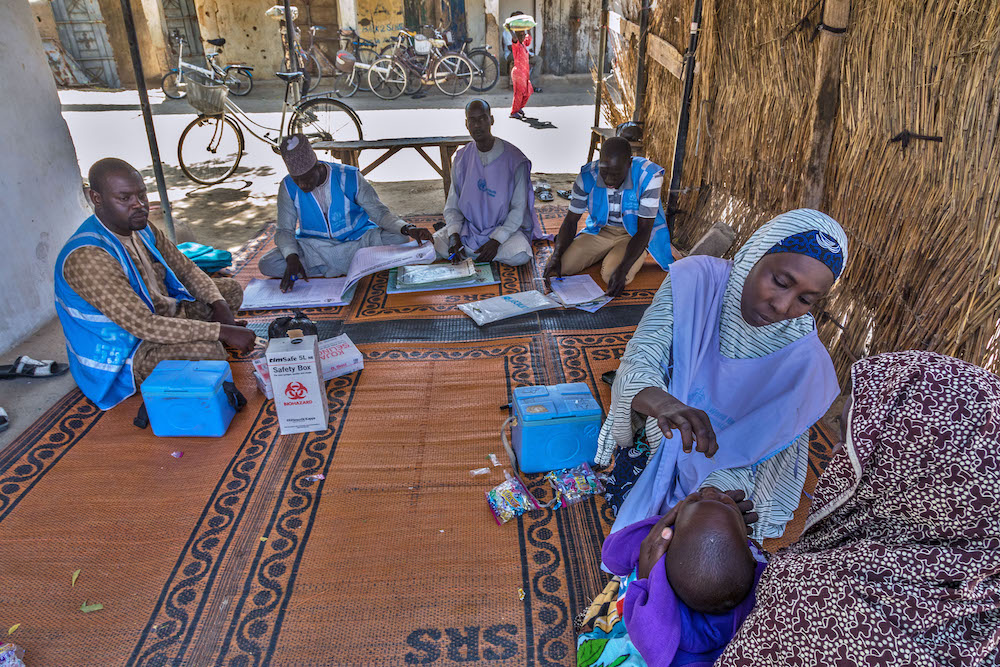
At the border with Cameroon, transit teams administer vaccines to the families who escaped insurgency or flooding in Borno State and are returning to their homes. © Andrew Esiebo/WHO
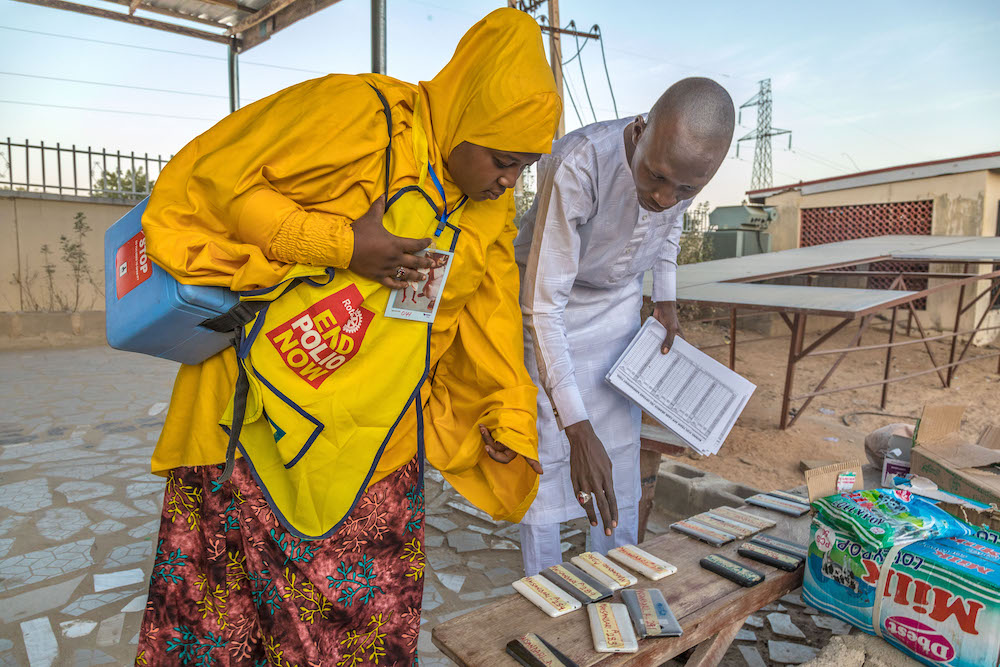
A vaccinator in Maiduguri collects materials for a door-to-door polio vaccination campaign, including vaccine box, recording sheet, mobile phone and marking pen. © Andrew Esiebo/WHO
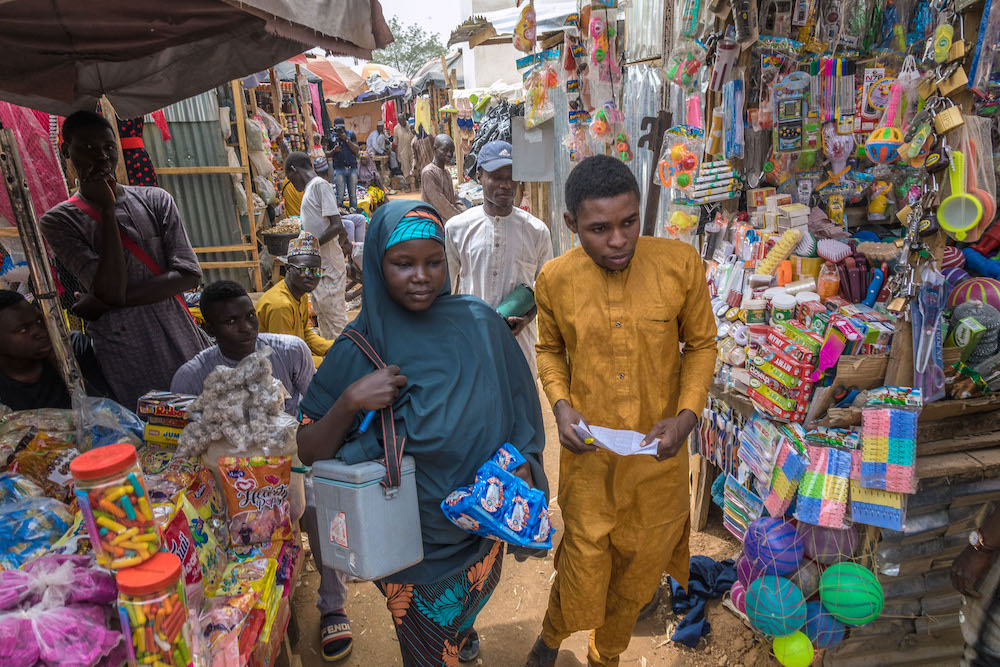
A vaccinator team in a market during a polio immunization campaign in Kano State. © Andrew Esiebo/WHO
